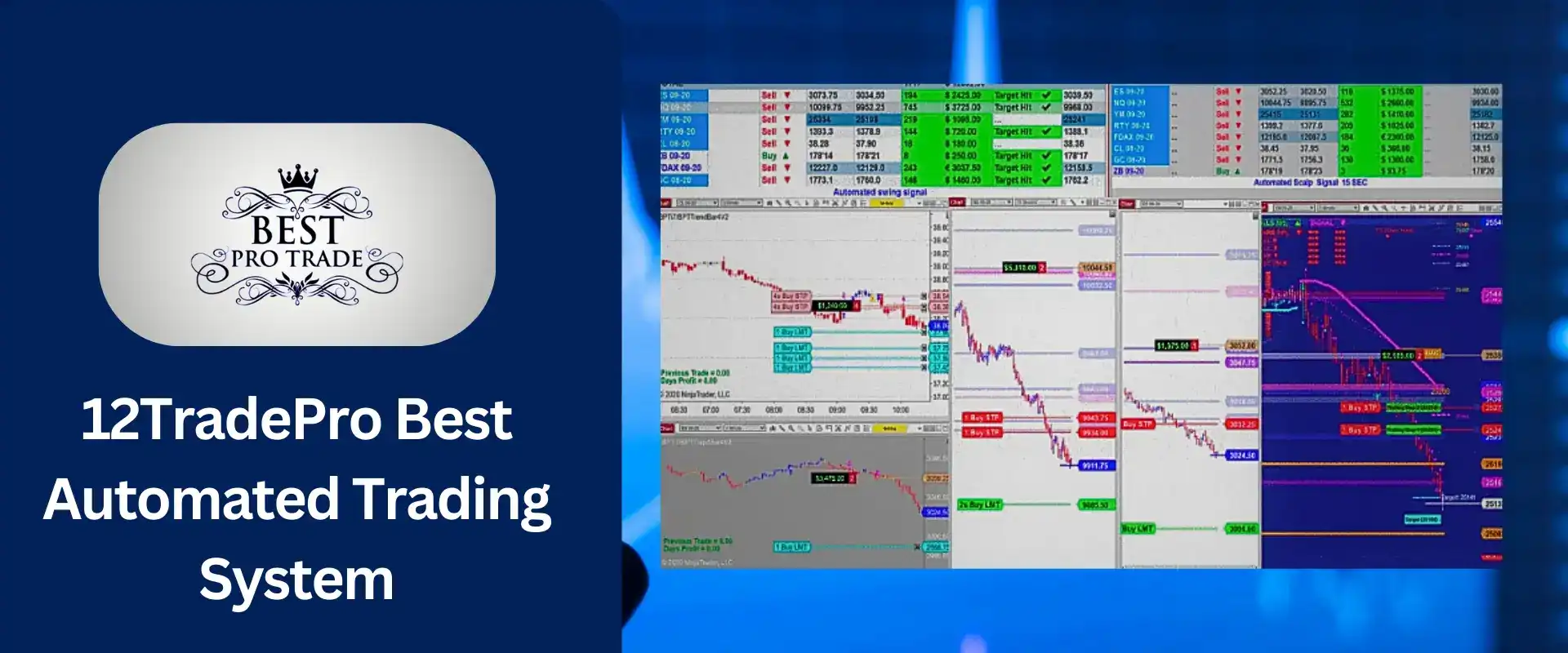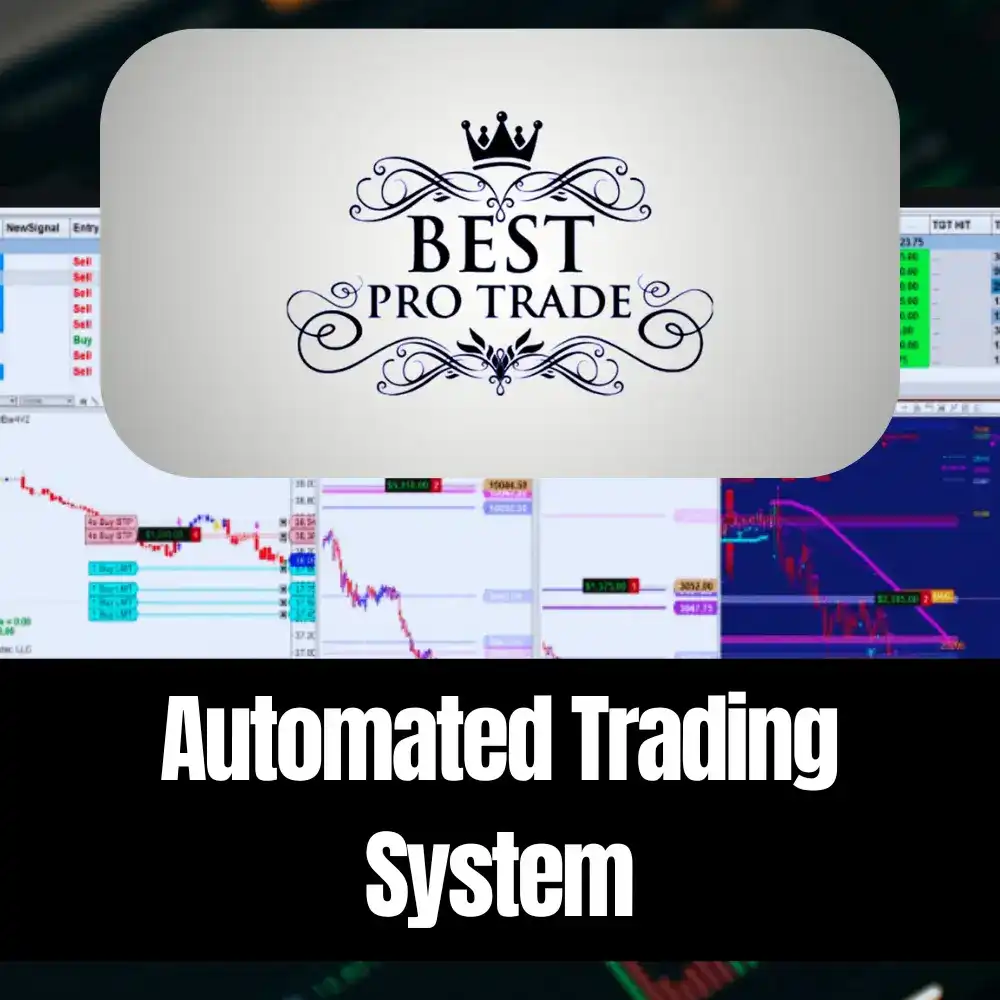An automated trading system (ATS) is a computer program that automatically executes trades on behalf of a trader based on predefined rules and criteria
Automated trading is the pinnacle of trading efficiency, encompassing everything from decision-making to order execution. This cutting-edge approach involves advanced techniques like quantitative modeling, risk monitoring, and algorithmic trading, making it a favored choice for a wide range of market participants, including trading firms, banks, hedge funds, asset managers, and pension funds.
The internet so far has been the greatest invention in all of history. It has changed the way we live in mere decades in a positive light. From watching movies to listening to music, or even reading a book, the Internet has made everything better than they already were. It has also had a big impact on the way we invest and the way we interact with the stock market.
Difference between automated trading and algorithmic trading
Automated Trading:
Automated trading refers to the use of computer programs or software to automatically execute trading orders in financial markets. These programs are designed to follow pre-defined rules and criteria for entering and exiting trades, without requiring human intervention for each trade. Automated trading can be applied to various types of financial instruments, including stocks, options, futures, and currencies.
Algorithmic Trading:
Algorithmic trading is a subset of automated trading that specifically focuses on the use of algorithms or mathematical models to execute trading strategies. These algorithms are designed to analyze market data, such as price movements and trading volumes, and make decisions about when to buy or sell financial instruments. Algorithmic trading often involves complex quantitative analysis and can incorporate various strategies, such as trend following, mean reversion, arbitrage, and high-frequency trading (HFT).
automated trading is a broader term that encompasses any trading system operated by a computer without human intervention. Algorithmic trading, on the other hand, specifically refers to trading strategies that rely on algorithms and mathematical models to make trading decisions. Algorithmic trading is a subset of automated trading and typically involves more sophisticated and data-driven approaches.

12Tradepro Automated Trading System the Evolution of The Stock Market: Stocks and Bonds
The stock market originally started in Belgium in 1531. Money lenders and “middlemen” would meet in Belgium from all over the world to deal with business, government, and individual debt issues. There were no real stocks in the 1500s. In place of stocks, they transacted In promissory notes and bonds. There were often partnerships that made income and calculations just like stocks today do, but there was no official share that could be bought or sold.
Nowadays, the story has changed. There are different instruments that a stock market uses, each of them equally and diversely efficient. There are different ways the internet has made this possible, and we would discuss these below
12Tradepro Automated Trading System Physical stocks are now electronic:
Back in the day, stocks could only be traded on actual stock certificates. This made it quite a back-and-forth event when a share is about to be bought or sold. The electronic platforms make sure stocks can be done at a much, much faster rate. This would consequently mean that more stock purchases are processed, leading to higher revenue.
Effective Communication: 12Tradepro Automated Trading System
Can you imagine how stressful it would have been to go to individual firms asking for their stock price? Just imagine if a deal isn’t reached at the end of the day and you end up wasting your time, energy, and resources. Making the stock exchange digital has absolved this issue. Firms are now able to display all the information on their stocks, as well as income statements, to allow investors easily access information before making a decision to invest. Announcements and other information can also be swiftly sent to investors at little charge. This is a very important factor in the growth of the stock market
Creation of New jobs: 12Tradepro Automated Trading System
Due to many more transactions and transaction rates going higher every day, lower commission rates, and innovative technology to improve the stock market, many job opportunities opened up for the maintenance of Exchange servers, buying and selling of stocks, and so on. Day trading was also invented because of fast transaction rates.
Dotcom companies: 12Tradepro Automated Trading System
Dotcom companies like Microsoft and Facebook have contributed massively to the growth of the stock exchange market. When companies like Microsoft, Apple, Cisco, etc started out, they became huge successes. They had a lot of investors, got a lot of sales, and had a gigantic profit within a decade of launch. This of course would reflect on the stock market positively. Other people began investing due to brand popularity and increasing value. These dot-com companies also improved communication to an extent, giving people access to information.
The Internet has influenced the stock market in a very positive way and judging by the current statistics, the connections between the two seem to be as strong as ever. There are different stock markets, each with its own valuations and sizes. The total market capitalization of equity-backed securities in the world went up from $2.5 trillion in 1980 to $68.65 trillion by the end of 2018. People tend to doubt the importance of the internet; some even paint the internet as something evil and unnecessary. There are facts, including the connection between the stock market and the internet, that prove otherwise. The internet has become so essential for growth and development. The sooner everyone realizes this, the better.
To learn more about automated trading systems visit: 12tradepro

